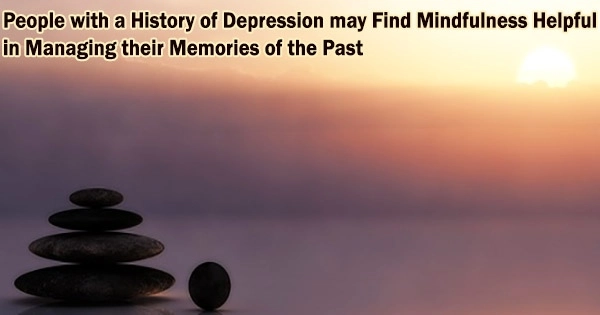As much as thinking back on recollections of past occasions might make us happy and pleased, doing so can also trigger difficult-to-control thoughts and feelings. This is especially true for those who are now depressed or have previously experienced depression.
When reflecting on personal past events, people with a history of depression frequently feel less pleasant and more negative feelings than those without such a history. They may also react to recollections of past occurrences in ways that amplify unfavorable mood and emotions, such as trying to avoid thinking about them, thinking about them critically and judgmentally, or attempting to control their feelings.
It might be particularly challenging to deal with memories that spontaneously and accidentally come to mind. Fortunately, researchers are beginning to uncover strategies that can help people with depression cope with memories of the past.
My co-authors and I examined whether participating in an online mindfulness program affected how persons with a history of depression regulate and manage their emotions when reflecting on recollections of personal past events in our most recent publication on the subject.
In our study, participants with a history of depression described using a variety of coping mechanisms to control or manage their emotions in reaction to both spontaneously occurring memories of past experiences and memories that they consciously considered in response to word cues. This includes both tactics that could intensify unpleasant emotions and tactics with generally more positive impact on mood and emotions.
The less-beneficial strategies that they reported on included:
- trying to avoid thinking about past events
- thinking about past events in an evaluative and judgmental way
- trying to suppress emotions when thinking of past events
The more-beneficial strategies included:
- changing the way they thought about the situation
- being able to think about the memories without having to react to the thoughts and feelings
While the other half of the study participants did not participate in the online mindfulness program at this time, about half of the individuals reported on these tactics before and after an eight-week period of participation.
This enabled us to compare people who participated in the online mindfulness training to those who did not, so order to determine whether those who did exhibited positive changes in how they reacted to memories of prior incidents.
What Did the Study Find?
# Engaging in online mindfulness practice increased the use of beneficial emotion-regulation strategies.
When reflecting about recollections of the past, participants in the online mindfulness program used more benevolent emotion-regulation techniques. In reaction to memories that spontaneously came to mind as well as recollections that they deliberately thought about, individuals reported better nonreactivity, or the ability to think about their emotions and thoughts without having to react to them.
Acceptance of experiences is associated with this kind of nonreactivity to ideas and feelings. Increased nonreactivity in reaction to recollections of the past therefore suggests that the individuals in the online mindfulness training may have developed a greater tolerance for experiencing memories of the past and any associated emotions.
The participants in the online mindfulness program demonstrated increased cognitive reappraisal, or attempts to alter their perspective on the situation, in response to memories of past events that spontaneously came to mind. This is in addition to showing increased nonreactivity in response to memories of past events. This technique for controlling emotions frequently improves mood.
As a result, people with a history of depression may experience less bad mood or feelings on a daily basis if cognitive reappraisal is used more often to deal with recollections of past events that pop into mind unexpectedly.
# Engaging in online mindfulness practice did not change the use of less-beneficial emotion-regulation strategies.
The online mindfulness training did boost the use of constructive emotion-regulation techniques in reaction to recollections of the past, but it had no discernible impact on the use of destructive techniques. One explanation for this might be that the participants didn’t practice mindfulness training enough to minimize their reliance on less effective emotion-regulation techniques.
Participants in the online mindfulness training were in charge of their own progress. This indicates that individuals set up their own mindfulness practices, and many of them did not practice very much.
Previous research has demonstrated that some effects of mindfulness training may take time to develop. It is perhaps likely that participants in the current study practiced mindfulness insufficiently for it to have any discernible impact on the less effective emotion-regulation techniques that were evaluated.
# Engaging in at least four weeks of the mindfulness program led to a reduction in depression symptoms.
Those who participated in the mindfulness program for at least four weeks shown extra advantages of doing so. This included a significant decrease in depression symptoms as well as further increases in the application of helpful emotion-regulation techniques. This demonstrates that with enough mindfulness training, persons with a history of depression may improve their capacity for handling memories of the past and suffer less depression overall.
These results hold promise for identifying strategies to assist those with a history of depression in managing their memories of the past, lowering their level of pessimism in daily life, and possibly preventing future depressive episodes.
Although the current study was modest, more and larger investigations are required to confirm the positive effects of mindfulness practice. We will be able to know with better confidence how mindfulness practice may assist people with a history of depression address memories of the past and lessen negative mood as more and larger research are conducted.
















